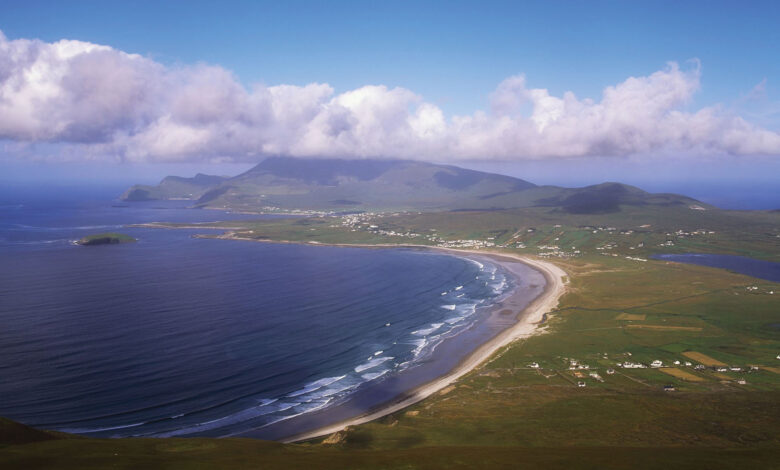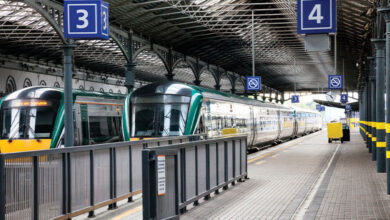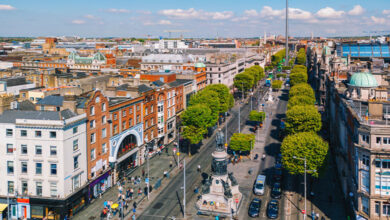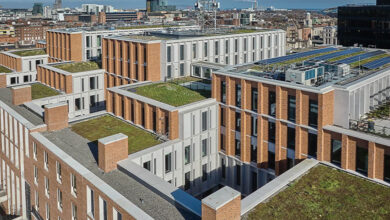The 35th Government of Ireland’s tourism priorities

The new government has changed the department responsible for tourism policy, with tourism now within the remit of the Department of Enterprise, Tourism and Employment.
Prior to this reshuffle, tourism had been within the remit of the former Department of Tourism, Culture, Arts, Gaeltacht, Sport and Media.
The Minister for Enterprise, Tourism and Employment is Peter Burke TD. However, at the time of writing, no Minister of State has been formally handed responsibility for tourism. The statutory handover of policy responsibility took place on 1 June 2025, under the Ministers and Secretaries (Amendment) Act 1939.
Programme for Government
The Programme for Government makes 37 references to tourism. The policy framework prioritises incremental growth in tourism capacity, with particular attention given to sustainability, infrastructure optimisation, regional distribution, and compliance with broader socioeconomic objectives.
The Government’s tourism policy is to be formalised in a new national tourism strategy to 2030, aimed at increasing visitor numbers and employment levels in a manner aligned with national development goals. The strategy incorporates existing frameworks such as the Wild Atlantic Way, Ireland’s Ancient East, Hidden Heartlands, and Dublin, and aims to distribute tourism-related activity more evenly across geographic regions. This is to mitigate overconcentration effects and optimise regional economic outputs.
Support for agencies such as Fáilte Ireland and Tourism Ireland will continue, with these entities tasked with promoting Ireland as a tourism destination in both domestic and international markets. Planned initiatives include the ‘Year of the Invitation’, a community-focused campaign to encourage diaspora engagement and community-level tourism event organisation. The campaign is modelled on historical precedents such as The Gathering (2013) and is primarily cultural in orientation.
Infrastructure and connectivity
Infrastructure investment will be directed toward improved access to tourism sites. This includes public transport enhancements to high-volume tourism zones and expanded greenway and blueway networks. A comprehensive review of national aviation policy is to be conducted to assess capacity and utilisation at regional and national airports, with a view to maximising inbound and outbound connectivity.
The Government also intends to upgrade existing tourism infrastructure via the Outdoor Recreation Infrastructure Scheme. Investment is to be directed toward tidal pools, trails, walkways, and other facilities. Coillte will remain the primary agency for forest park maintenance and upgrades.

Sustainable and regenerative tourism
The document places a recurring emphasis on “regenerative” tourism, particularly in the Midlands. EU Just Transition Funds are to be deployed to support such projects. These are intended to achieve co-benefits in environmental remediation and economic diversification for areas experiencing industrial decline.
Tourism initiatives will be aligned with the Government’s climate and biodiversity strategies. Nature-based tourism assets such as greenways, blueways, and marine-based activities are identified as low-impact alternatives to conventional tourism forms. Funding for the National Walks Scheme and continued stakeholder collaboration (e.g., with landowners and local authorities) are central to these objectives.
Marine and coastal development
A separate marine tourism strategy is to be developed in collaboration with Fáilte Ireland. Objectives include the enhancement of coastal visitor infrastructure, development of marina assets, and promotion of marine recreational activities such as whale and dolphin observation. These activities will be implemented alongside expanded Marine Protected Areas (MPAs) and associated conservation regulations.
The tourism strategy aims to ensure that ecological considerations are embedded within all marine sector tourism development proposals. The Government states that it will work to balance ecological protections with economic usage through legislative and policy oversight.
Economic development and sectoral integration
The programme outlines a continuation of financial and technical support mechanisms for rural tourism under the LEADER Programme and the Rural Regeneration and Development Fund. Measures include incentives for sustainable food and beverage tourism, particularly where local produce can be integrated into visitor offerings.
The tourism strategy will also interface with skills development policies to address career pathways within the hospitality and tourism sectors. Engagement with the Department of Further and Higher Education is planned to expand course offerings and labour market alignment, using the National Training Fund as the primary financing mechanism.
Analysis
The handover of tourism policy demonstrates that the new government views tourism as an economic enabler, rather than an intrinsic policy objective. The Government’s tourism-related policies as outlined in the Programme for Government are consistent with a cautious, data-driven approach to sectoral development.
The focus on regional balance, environmental sustainability, and infrastructure investment reflects a broader integration with national economic and planning frameworks. However, implementation will rely on coordination across multiple departments, regulatory compliance, and alignment with EU funding structures.





